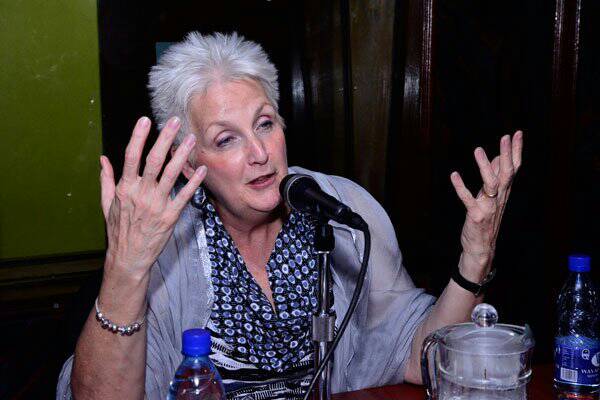The U.S Ambassador to Uganda Deborah Malac has aid that the forthcoming Global Health Security Agenda (GHSA) meeting to be held in Munyonyo will reinforce global efforts to combat infectious diseases. Malac noted that diseases know no borders which necessitates that all countries strengthen their capacities to prevent the spread.
On Wednesday, Uganda will host a two day Global Health Security Agenda ministerial meeting at the Commonwealth Speke Resort in Munyonyo.
The meeting will focus on “Health Security for all: Engaging Communities, Non-Governmental Organizations and the Private Sector”.
GHSA was launched in February 2014 in the U.S as an effort by nations, international organizations, and civil society to secure the globe from infectious disease threats.
Its core aim is to promote global health security as an international priority and facilitating implementation of the World Health Organization (WHO) and other relevant global health security frameworks.
Ambassador Malac who was addressing a news conference at Uganda Media Centre on Tuesday described the high level forum as “an opportunity for countries around the world to strengthen our joint commitment to working toward a world that is safe and secure from infectious disease threats”.
“A disease threat anywhere is a disease threat everywhere. In recent years, H1N1 influenza, Ebola, and Zika have all proved that outbreaks can start anywhere, spread rapidly across the globe, and have devastating results,” she said, underscoring the importance of countries working together.
She cited the disastrous effects that the Ebola epidemic had not just within Liberia where it emanated but the entire continent and world.
Malac said the threat posed by disease outbreak is not here to stay and that no single country alone can stop diseases like these.
“Preventing infectious diseases from spreading requires a dedicated global effort,” she said.
Her statement comes a week after the Ministry of Health declared an outbreak of the Marburg virus in the Eastern Uganda districts of Kween and Kapchorwa. The outbreak which is being contained has so far killed one person.
Ensuring that all countries can prevent, detect, respond to, and control disease outbreaks at the local level is critical, the Ambassador said. She however noted that priority should be given to prevention which she said “is far less expensive than emergency response later”.
“We need to ensure that governments around the world make health security financing a national priority. Under GHSA, the United States assists 31 countries and has committed USD 1 billion for 17 at-risk countries, including Uganda, to strengthen global health security,” Malac said.
Minister of Health, Dr. Ruth Aceng said that in 2013, Uganda was identified together with Vietnam as a Global Health Security (GHS) demonstration country.
CDC has contributed over $1 billion to the health of Ugandans and has provided technical assistance in many areas. Other U.S. government agencies – including USAID and the Departments of Defense, Treasury, and Agriculture – have also been playing a key role supporting national efforts to detect and respond to disease threats.
Minister Aceng said that since Uganda became a member of GHSA, it has registered successes among them; establishment of an antimicrobial resistance committee on antibiotics, drafting policies for biosecurity and biosafety, and scaling up immunization coverage for all antigens.
Uganda has also constructed the National Health Laboratory Services complex in Butabika, supported by CDC.
A similar collaboration with CDC has trained field epidemiologists at the School of Public Health at Mulago.










